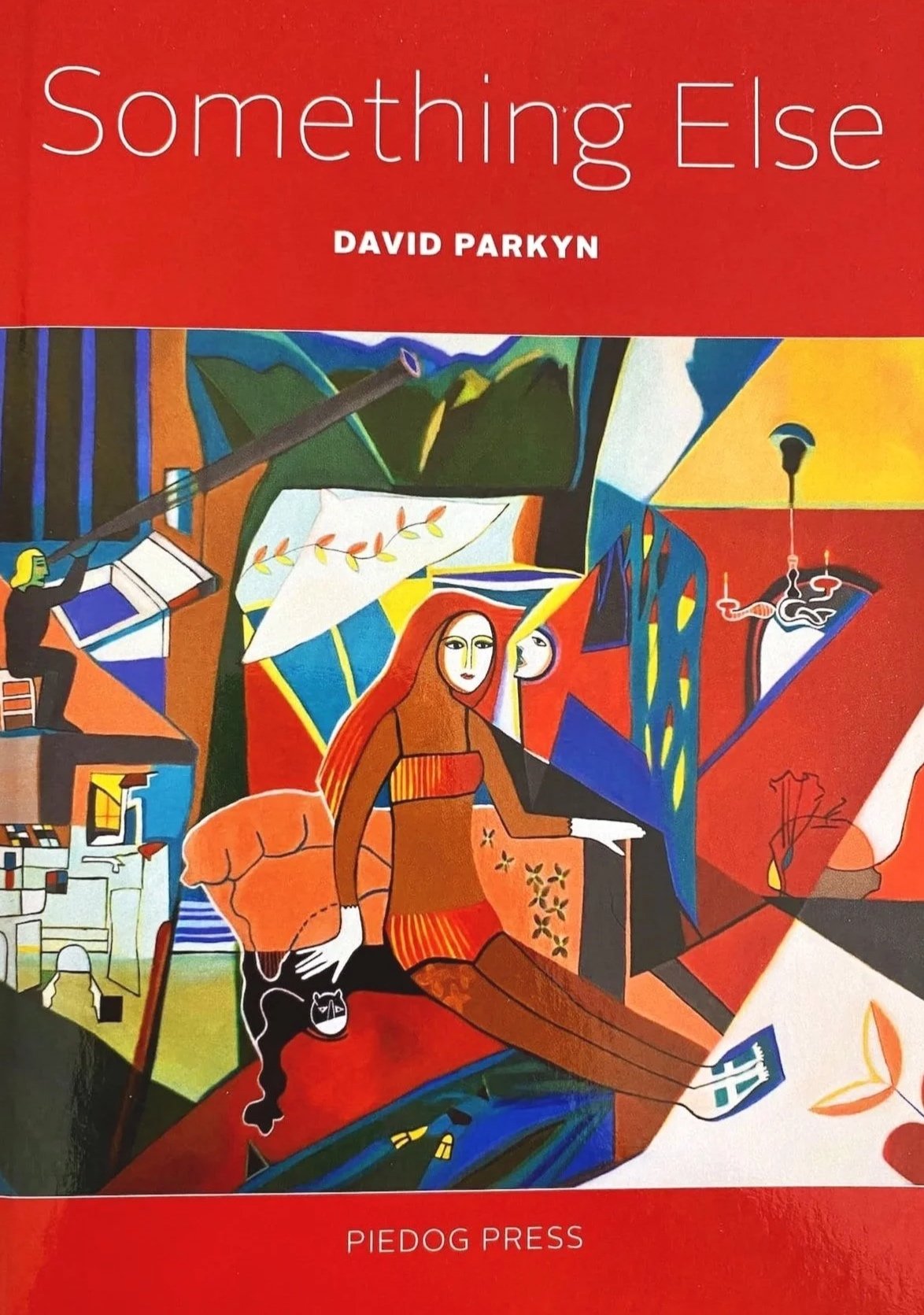David Parkyn was born in Dunedin and grew up in Lower Hutt and Wellington. He studied politics and comparative religion at Victoria and Canterbury universities before traveling through Central and South America, hitchhiking across Canada and the USA and mixing in the counterculture. These early experiences are evident in Something Else. He has published two collections of poetry: Children of the Storm (with illustrations by Phillip Clairmont, Sally Griffin and Alan Taylor) and Colonial Landscape. He is currently working on a new novel.
One reason the book is remarkable is the language. It is classical but manages to describe hip better than hip. A good time to do a recall. Jacqueline Fahey
CHAPTER ONE an extract
TROON IN BOOTS, khaki shorts and swandri, defiant. A chill is in the early morning air and below the ramparts in shadowy corners there is frost and even thin slivers of ice. A world in winter. Troon shivers.
Yet this be no dead time. Forty-feet up Troon turns a blooded eye from blistered steel to the eternal foe whose mirrored battlements blot the skyline. Remorseless, they descend in heartless lines from the volcanic hills this city is built on aiming for the inner harbour and a narrow piece of reclaimed land whose oily edges mark our final frontier. Each week their seige engines draw closer.
A hairy paw wipes the sweat streaking beneath the headband of an overheated forehead. From its cave of brow and gristle an angry eye glares. In paint-splattered robes of office Troon struts his stuff yelling abuse at enemies and allies alike. And at the weather. Especially the weather! Of late it has been routinely bizarre.
Yes, this be no dead time. Swinging down from his rusty throne Troon inspects the placement of our hinged ladders, tall tubular sentinels holding in their arms the long thick planks along which he may strump and stride, observing at close quarters the topography of his kingdom and the myriad invaders of shell and weed who seek to undermine the integrity of His Excellency's defences.
Every winter we knock them back, the viking molluscs. Every year Troon and I. His faithful servant. His labourer. His confessor. I and I. But also a critic. And yes, a goad. Minimus my Factotum, Seaweed my Slave, is how Troon captions me, depending on his humour. And sometimes My Demon My Devil, but I will leave such cartoonery at that.
Except to say I am also a chronicler and of this Troon knows nothing. And must never know. He would take it very badly. To Troon loyalty is all and a chronicle, no matter how faithful, would be evidence of betrayal to an authority other than his own. Banishment, permanent and total, would be my fate; it would make no difference if that authority be Posterity herself. Or prosperity!
And even if this was not so, even if Troon should relent and pardon me my conceit it would be ruinous. The thought of a self-conscious Troon is insufferable. A death sentence.
I could not serve his successor.
Yet inevitably there are times when I draw on Troon's confidences regarding certain events. Thus, while he lives my chronicle must remain buried
But remain it must.
Because the tale is worth telling? Because it may shed some light on events of interest to more people than Troon and myself? Because 'the truth shall set ye free?'
Et cetera et cetera.
What is true is this journal began as a logbook, merely recording details of my work hours and detailing jobs done and supplies bought and stored. But from a chance remark, which in all fairness I must record as my own (the historical record commands!), my logbook soon became a diary and then something else - a record of a voyage, and perhaps also my confessor. For if I be honest (and if not here, where?) there are times when I need space from Troon and if that be an indulgence then let it be.
So, this fragment of a logbook cum diary cum expeditionary field book cum whatnot I now present to you. And although by the time you get to read this I hope to have sanded and smoothed some of its rougher joints and edges, if I know not who you are, or when you be, that surely is to our mutual advantage.
Let us therefore raise our glasses and peer over the ramparts to the crests and hollows beyond. To art's accomplice: to treason...


